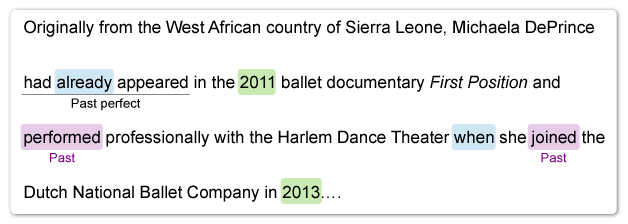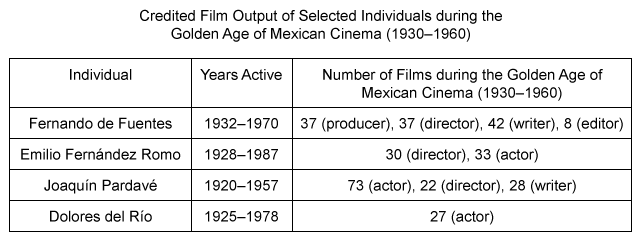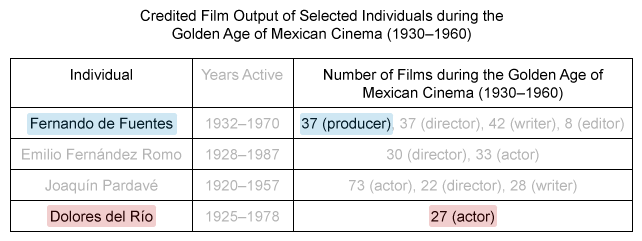SAT English, Reading, and Writing Sample Questions
See what the SAT® Reading and Writing section looks like with interactive sample questions and clear explanations. Work through exam-style passages that target reading, grammar, and editing skills. Build stronger comprehension and writing precision with high-quality sample questions.
SAT English, Reading, and Writing Sample Questions by Topic
SAT Reading Comprehension Sample Questions
Passage
By drawing water into a chamber in its large claw and then snapping the claw shut, a pistol shrimp can produce bubbles that, when popped, create a powerful shockwave that stuns nearby prey. However, these shockwaves do not harm the shrimp themselves, which hide in burrows, waiting to stun fish and other crustaceans. To explain this phenomenon, scientist Alexandra Kingston and colleagues studied pistol shrimp and noted that these shrimp have an orbital hood, a helmet-like exoskeleton covering their brain. Finding the feature unique to snapping shrimp, Kingston hypothesized that they are protected from shockwave trauma by their orbital hoods, leaving them unaffected by the damaging sound.
Question
Which finding, if true, would most directly undermine Kingston's hypothesis?
| A. Pistol shrimp with orbital hoods left intact quickly return to their burrows after they snap their large claw without catching any prey. | |
| B. Pistol shrimp whose orbital hoods were surgically removed are less disoriented than their prey after snapping because they are protected by their burrows. | |
| C. Pistol shrimp that have had their orbital hoods surgically removed are unaffected by the powerful shockwaves that stun the prey. | |
| D. Pistol shrimp that have had their orbital hoods left intact change the frequency and volume of their snaps depending on the type of prey. |
Explanation
Determine what the hypothesis claims. Then, check the answers to select the finding that undermines (contradicts) Kingston's hypothesis.
The hypothesis proposes that pistol shrimp are protected from the shockwaves they create by their orbital hoods. Showing that pistol shrimp were protected even when their hoods were removed would demonstrate that the hood doesn't offer shockwave protection—it must come from something else.
One finding suggests that the orbital hoods don't protect shrimp and contradicts the hypothesis: Pistol shrimp that have had their orbital hoods surgically removed are unaffected by the powerful shockwaves that stun the prey.
(Choice A) After snapping to stun their prey, hooded pistol shrimp quickly returned to their burrows, which indicates that the shockwave didn't affect them, supporting rather than undermining the hypothesis.
(Choice B) The text describes pistol shrimp being unaffected by their shockwaves but doesn't state that the shrimp are less disoriented by their shockwaves when they are hiding in burrows.
(Choice D) The shrimp changing their snaps depending on the prey they spot wouldn't explain whether their orbital hoods protect shrimp from shockwaves.
Things to remember:
Information that undermines a theory will contradict what the hypothesis claims.
Passage
The Cretaceous period ended 66 million years ago, presumably when an asteroid hit the Earth, causing the extinction of dinosaurs. Paleontologists Kyle Atkins-Weltman and Eric Snively examined three bones of what they thought was a juvenile specimen of a caenagnathid—an already known species of dinosaur from this time period—in order to assess its maturity and found their specimen was an adult dinosaur from a completely different species. Atkins-Weltman and Snively claim that there could be even more dinosaur species that have yet to be discovered—potentially even through re-examination and reclassification of fossils already in museum collections.
Question
Which finding, if true, would most directly weaken Atkins-Weltman's and Snively's claim?
| A. Additional caenagnathid bones are examined by other paleontologists who state that some of these bones have not been correctly classified. | |
| B. Paleontologists reexamine a large number of previously catalogued dinosaur bones only to find that all of the species have been identified correctly. | |
| C. Paleontologists agree that dinosaur species were in decline during the Cretaceous period despite the discovery of Atkins-Weltman and Snively. | |
| D. Paleontologists determine that another method of identifying dinosaur species is more accurate than analyzing fossilized bones. |
Explanation
Choice B is correct. Atkins-Weltman and Snively asserted that more dinosaur species could be discovered by looking closely at fossils in museums and changing the classification if they are incorrect. One way to weaken this assertion would be to analyze the categorized fossils, only to discover that they have been classified correctly.
Passage
The following text is adapted from Henry Wadsworth Longfellow's 1879 poem "The Cross of Snow."
In the long, sleepless watches of the night,
A gentle face — the face of one long dead —
Looks at me from the wall, where round its head
The night-lamp casts a halo of pale light.
Here in this room she died; and soul more white
Never through martyrdom of fire was led
To its [rest]; nor can in books be read
The legend of a life more [blessed].
Question
What is the main idea of the text?
| A. The speaker is remembering a beloved's life after seeing her image. | |
| B. The speaker is too saddened to focus on a beloved's features. | |
| C. The speaker is agitated and imagines the ghost of a beloved in the room. | |
| D. The speaker is restless and concerned about a beloved's reputation. |
Explanation
Paraphrase the ideas in the poem's lines. Then summarize the ideas of the poem's sentences and choose the answer with an idea like your summary.
| Paraphrased Lines | |
| S1 | At night when I can't sleep the gentle face of a woman who died long ago gazes at me from the wall, and around her head is a halo of light created by the lamp. |
| S2 | She died in this room, with a soul purer than any other holy person who has died; no books tell the story of a more blessed person. |
| Summary | The speaker describes an image of a woman and is reminded of her life. |
One answer includes an idea like the summary statement: The speaker is remembering a beloved's life after seeing her image.
(Choice B) The speaker does focus on the woman's features, saying she had a “gentle face” and appears to have a halo around her head. The speaker's emotions are not described in the poem.
(Choice C) The speaker describes a deceased woman, but the poem doesn't describe the speaker's state of mind or suggest that the woman is a ghost.
(Choice D) The speaker describes a “sleepless” night and isn't resting, but there is no indication that the speaker is concerned about the reputation of a good woman characterized by a “gentle face” and holiness.
Things to remember:
Paraphrase the lines of the poem to determine its main idea.
SAT Grammar and Usage Sample Questions
Passage
Stephanie Jenouvrier of the Woods Hole Oceanographic Institution studied how ______ According to her 2021 research, emperor penguin chicks had an increased chance of drowning when they found fewer solid surfaces on which to rest after swimming.
Question
Which choice completes the text so that it conforms to the conventions of Standard English?
| A. do emperor penguins depend on sea ice. | |
| B. do emperor penguins depend on sea ice? | |
| C. emperor penguins depend on sea ice? | |
| D. emperor penguins depend on sea ice. |
Explanation
Look at the sentence structure before the blank to determine whether a question or statement is needed to complete the sentence.
| Question structure: Helping verb + noun + verb + dependent clause? |
| Ex. Did Karlton research how whales sleep? |
| Statement structure: Noun + verb + dependent clause. |
| Ex. Karlton researched how whales sleep. |
“How” sometimes begins a question, but when it follows a statement, it begins a dependent clause that should place the noun before the verb.
Because there is no helping verb before the noun “Stephanie Jenouvrier,” the sentence is a statement, and what follows “how” is a dependent clause that completes the statement. Therefore, the correct answer will place the noun before the verb and end with a period: emperor penguins depend on sea ice.
(Choice A) Placing the noun “emperor penguins” between the helping verb “do” and the verb “depend” is the structure for a question, not a statement.
(Choice B) A question can't complete a sentence that begins as a statement.
(Choice C) The sentence begins with a statement, and having the noun “emperor penguins” before the verb “depend” is the structure for a statement, so a period, not a question mark, is needed.
Things to remember:
When “how” follows a statement, it begins a dependent clause that will place the subject before the verb; the sentence will end with a period.
Passage
With more than 2,000 acts, the music festival South By ______ or SXSW, as the annual event is more frequently called—has grown in scope and size every year since 1987. SXSW attracts people from all over the US to Austin, Texas, for a weeklong celebration of creativity in music.
Question
Which choice completes the text so that it conforms to the conventions of Standard English?
| A. Southwest— | |
| B. Southwest: | |
| C. Southwest, | |
| D. Southwest |
Explanation
Rule: A mid-sentence interruption should have the same punctuation—either two commas, two dashes, or a pair of parentheses—before and after it.
Each answer choice uses different punctuation, so look at the punctuation already in the sentence and determine what additional punctuation is required, if any.
The nonessential information about what the festival is commonly called is not required for the sentence to make sense or to be grammatically correct. Therefore, this information, placed between the subject and the verb, is a mid-sentence interruption that should be set apart from the sentence with matching punctuation before and after it.
The sentence includes a dash AFTER the mid-sentence interruption. Therefore, a dash should also be placed BEFORE the interrupting phrase to set it apart from the rest of the sentence, making Southwest— correct.
(Choice B) A colon before the interruption would not match the dash after the interruption, and colons are never used in pairs to set apart a mid-sentence interruption.
(Choice C) Although a comma follows “SXSW,” this information is part of the interruption between the subject and main verb. Therefore, a comma after “Southwest” isn't required and wouldn't match the dash used after “called” to set apart the interruption.
(Choice D) The mid-sentence interruption should be separated by the same punctuation before and after it—this answer lacks the dash needed to match the second dash following the phrase.
Things to remember:
Use the same punctuation before and after a mid-sentence interruption.
Passage
Originally from the West African country of Sierra Leone, Michaela DePrince _____ in the 2011 ballet documentary First Position and performed professionally with the Harlem Dance Theater when she joined the Dutch National Ballet Company in 2013 at the age of 18, becoming the company's only dancer of African origin at the time.
Question
Which choice completes the text so that it conforms to the conventions of Standard English?
| A. had already appeared | |
| B. was already appearing | |
| C. already appeared | |
| D. already appears |
Explanation
Rule: Use past perfect tense to show an action completed before another action or point in the past.
To choose the correct verb, look for clues in the sentence—like dates, other verbs, and time-order words—to determine the sequence of events.
The past tense verbs “performed” and “joined” are clues that the action referred to in the blank also occurred in the past, and the time-order words “already” and “when” indicate a sequence of events: DePrince's documentary appearance happened in 2011, before she joined the Dutch National Ballet in 2013.
Therefore, because both actions happened in the past but the documentary appearance happened earlier in the past, the correct answer is the past perfect tense, had already appeared.
(Choice B) “Was already appearing” inaccurately suggests that the documentary, which was completed in 2011, was still being filmed when DePrince joined the ballet company in 2013.
(Choice C) The past tense (“appeared”) is incorrect because it doesn't specify when the action happened in relation to other past events. The word “already” indicates the action was completed before something else, so the past perfect tense (“had appeared”) is required to fit the specific sequence.
(Choice D) “Appears” is present tense, but the documentary was made in the past, in 2011.
Things to remember:
Use past perfect tense to show that one past action or event happened before another.
SAT Vocabulary in Context Sample Questions
Question
A cardboard tube is in the shape of a circular cylinder that is open at both ends. The height of the tube is 14 inches and its diameter is 8 inches. What is the surface area, in square inches, of the tube?
| A. 32π | |
| B. 112π | |
| C. 144π | |
| D. 224π |
Hint :
A circular cylinder that is open at both ends has a net that is a rectangle.
Explanation
To calculate the surface area of a three-dimensional figure, consider its net (the 2-dimensional shape of each surface). A circular cylinder that is open at both ends has a net that is a rectangle.
The formula for the area of a rectangle is . The rectangle has length that is equal to the height h of the cylinder. The width of the rectangle is equal to the circumference of the cylinder, where d is the diameter.
First use the given information about the cylinder to find the length and width of its rectangular net. The cylinder has a given height of 14 inches, so .
The given diameter of the cylinder is 8 inches, so plug d = 8 into the circumference formula to find that .
Now calculate the area of the rectangle. Plug and into the area formula and simplify.
| Area of a rectangle | |
| Plug in and | |
| Multiply |
The surface area of the tube is square inches.
Note: It is also possible to use circumference formula with radius r = 4 to see that the width is .
(Choice B) is equal to the combined area of the top and bottom surfaces of a closed cylinder with diameter 8.
(Choice C) is equal to the surface area of a cylinder with a diameter of 8 that is closed (instead of open) at both ends.
(Choice D) may result from using an incorrect formula for the circumference of the cylinder.
Things to remember:
- The surface area of a three-dimensional figure is equal to the combined area of each shape in its net.
- The net of a three-dimensional figure contains the two-dimensional shape of each surface in the figure.
- A circular cylinder that is open at both ends has a net that is a rectangle.
- The formula for the area of a rectangle is .
- The circumference of a circle with diameter d is equal to .
Question
When triglycerides (RCO2CH2CH(O2CR′)CH2CO2R″) are mixed with methanol (CH3OH) in the presence of a catalyst, the reaction produces biofuels, a mixture of fatty acid methyl esters (CH3(CH2)nCOOCH3) and glycerin (C3H8O3):
Scientists performed an experiment to determine the composition of the biofuel created from raw rice bran oil. Figure 1 shows the relationship between the transmittance of light in percent and wavenumber in , or cm−1.
Figure 1
Experiment
To determine the effect of oxygen in air on biofuel at 3 different temperatures, scientists assembled the apparatus shown in Figure 2. First, they connected a measuring cell, composed of a gold working electrode and a reference electrode in deionized water, to a computer. Then, they placed a reaction vessel sealed with a 2-holed stopper into a heating block. Next, they placed an incoming air inlet tube into 1 hole of the 2-hole stopper and a tube, used to connect the reaction vessel to the measuring cell, in the other hole.
Figure 2
At each temperature, the scientists performed the following 3 steps:
- A small volume of biofuel was placed in the clean, empty reaction vessel, which was then sealed with the 2-holed stopper.
- The reaction vessel was heated to the desired temperature, and after 1 min the air inlet was opened to a rate of 10 L/hr.
- The open circuit potential (OCP), in mV, measured between the gold working electrode and the reference electrode, was continuously monitored for up to 50 hr of reaction time or until the biofuel degraded.
The results are shown in Figure 3.
Figure 3
What is the starting OCP value of the biofuel samples expressed in volts (V)?
| A. 0.0050 V | |
| B. 0.050 V | |
| C. 0.50 V | |
| D. 5.0 V |
Explanation
OCP value of the biofuel samples is shown in Figure 3. Examine Figure 3 to determine the starting OCP values for the biofuel samples, then convert the units to volts (V).
According to Figure 3, the starting OCP value (at time 0) was 50 mV.
| Prior Knowledge: In metric conversion for every 1 volt (V), there are 1,000 millivolts (mV), so divide the value in mV by 1,000 or move the decimal point three places to the left to convert into V. |
Therefore, the starting OCP value of the biofuel samples expressed in volts is 0.050 V.
(Choice A) 0.0050 V is equal to 5.0 mV, not 50 mV.
(Choices C and D) To convert mV to V, move the decimal point three places to the left, not one or two places.
Things to remember:
When converting from a smaller metric unit to a larger metric unit, the decimal point is moved to the left.
Question
When triglycerides (RCO2CH2CH(O2CR′)CH2CO2R″) are mixed with methanol (CH3OH) in the presence of a catalyst, the reaction produces biofuels, a mixture of fatty acid methyl esters (CH3(CH2)nCOOCH3) and glycerin (C3H8O3):
Scientists performed an experiment to determine the composition of the biofuel created from raw rice bran oil. Figure 1 shows the relationship between the transmittance of light in percent and wavenumber in , or cm−1.
Figure 1
Experiment
To determine the effect of oxygen in air on biofuel at 3 different temperatures, scientists assembled the apparatus shown in Figure 2. First, they connected a measuring cell, composed of a gold working electrode and a reference electrode in deionized water, to a computer. Then, they placed a reaction vessel sealed with a 2-holed stopper into a heating block. Next, they placed an incoming air inlet tube into 1 hole of the 2-hole stopper and a tube, used to connect the reaction vessel to the measuring cell, in the other hole.
Figure 2
At each temperature, the scientists performed the following 3 steps:
- A small volume of biofuel was placed in the clean, empty reaction vessel, which was then sealed with the 2-holed stopper.
- The reaction vessel was heated to the desired temperature, and after 1 min the air inlet was opened to a rate of 10 L/hr.
- The open circuit potential (OCP), in mV, measured between the gold working electrode and the reference electrode, was continuously monitored for up to 50 hr of reaction time or until the biofuel degraded.
The results are shown in Figure 3.
Figure 3
According to Figure 1, of the following wavenumbers, which one has the lowest percent transmittance?
| A. 722 cm−1 | |
| B. 1,069 cm−1 | |
| C. 1,436 cm−1 | |
| D. 3,007 cm−1 |
Explanation
Analyze Figure 1 to determine which of the wavenumbers listed in the answer choices has the lowest percent transmittance.
Figure 1 shows:
- 722 cm−1 has approximately 86% transmittance.
- 1,069 cm−1 has approximately 75% transmittance.
- 1,436 cm−1 has approximately 84% transmittance.
- 3,007 cm−1 has approximately 95% transmittance.
Therefore, wavenumber 1,069 cm−1 has the lowest percent transmittance.
(Choices A, C, and D) The wavenumbers in these answer choices all have a percent transmittance that is larger than the percent transmittance relating to wavenumber 1,069 cm−1. Therefore, these wavenumbers do not have the lowest percent transmittance.
Things to remember:
When answering questions about the lowest or highest value in a data set, start by looking
at the answer choices to narrow down the number of points to analyze.
SAT Data and Evidence Sample Questions
Passage
In a study on mutations in genes cusS and rho—genes that are involved in the bacteria E. coli’s response to environmental stressors—researchers examined the resistance of several strains of E. coli to varying concentrations of silver nitrate, a naturally antibacterial substance. Populations in the study included a wild-type strain with no mutations and two strains with the same mutation in cusS (C1) and differing mutations in rho (R1 and R2). The strains were identified as CR, C1R1, and C1R2, respectively. Together with previous findings that the C1 cusS mutation confers increased resistance to silver nitrate, data in the graph of growth rates suggest that ______
Question
Which completion of the text is best supported by data in the graph?
| A. the R2 rho mutation is more effective on its own against silver nitrate than the C1 cusS mutation. | |
| B. the cusS gene provides resistance to high concentrations of silver nitrate, while the rho gene provides resistance regardless of concentration. | |
| C. the R2 mutation in rho may increase the effectiveness of the C1 cusS mutation when concentrations of silver nitrate are high. | |
| D. E. coli's resistance to silver nitrate is highest when rho has both the R1 mutation and the R2 mutation. |
Explanation
Find information in the text that connects to the data in the graph. Then, choose the answer that draws a logical conclusion from the data.
The text introduces three strains of bacteria, which correspond to the three lines in the graph. Each strain has different mutations. The C1R2 strain maintains a relatively high growth rate across the whole graph, while the growth rates of the other two strains drop sharply as the concentration of silver nitrate increases.
The text’s last sentence indicates that the C1 mutation has previously been found to help E. coli resist silver nitrate. Two strains contain the C1 mutation, but the one that also has the R2 mutation performs better than the other at high concentrations of silver nitrate.
Because the R2 mutation is the difference between those two strains, it’s reasonable to conclude that the R2 mutation in rho may increase the effectiveness of the C1 cusS mutation when concentrations of silver nitrate are high.
(Choice A) The graph doesn’t show any strains with the R2 mutation alone or the C1 mutation alone, so it’s not possible to conclude that one is more effective than the other on its own.
(Choice B) The graph shows strains with certain mutations in the genes cusS and rho, but there isn’t enough information to conclude anything about the individual genes on their own.
(Choice D) None of the strains have two rho mutations in the same gene.
Things to remember:
The answer must be supported by data in the graph.
Passage
Titanium dioxide (TiO2) offers promise as a material for water purification: when TiO2 absorbs light, it acts as a catalyst for a reaction that eliminates pollutants. One disadvantage of TiO2, however, has to do with how different types of light (visible and full-spectrum) affect the photocatalytic process. With pure TiO2, the process is triggered only by full-spectrum light, not visible light, a fact that limits the material’s efficiency. Pelagia-Irene Gouma and her team devised a copper additive to expand the range of light that enables TiO2 to purify water. They tested the copper-enhanced TiO2 under both visible and full-spectrum light and concluded that the copper additive has the potential to improve TiO2-based materials’ efficiency in eliminating waterborne pollutants.
Question
Which choice best describes data from the graph that support Gouma and her team's conclusion?
| A. Both the pure TiO2 and the copper-enhanced TiO2 eliminated more than 60% of pollutants when exposed to full-spectrum light for 240 minutes. | |
| B. The copper-enhanced TiO2 eliminated a higher percentage of pollutants under visible light alone than pure TiO2 eliminated even under full-spectrum light. | |
| C. Copper-enhanced TiO2 exposed to full-spectrum light eliminated approximately 75% of pollutants after 240 minutes, while pure TiO2 exposed to full-spectrum light eliminated approximately 25% of pollutants after 240 minutes. | |
| D. There was a notable difference between the percentage of pollutants eliminated by copper-enhanced TiO2 when exposed to visible light only and when exposed to full-spectrum light. |
Explanation
Summarize the text and identify the team’s conclusion. Then, analyze the graph to find data that support this conclusion and choose the answer that contains this data.
The text discusses TiO2 as a catalyst for water purification, claiming that TiO2 is inefficient because it works only under full-spectrum light. The final sentence states the researchers’ conclusion that adding copper to TiO2 may improve TiO2’s efficiency.
The graph shows the performance of both copper-enhanced TiO2 and pure TiO2 under two different lighting conditions. Each bar represents the percentage of pollutants eliminated in 240 minutes, so a higher bar indicates more pollutants eliminated and therefore better efficiency.
The bars representing copper-enhanced TiO2 in each lighting condition are both higher than either of the bars for pure TiO2, indicating that copper-enhanced TiO2 was more efficient even under less favorable lighting conditions (visible only) than pure TiO2 was in favorable conditions (full-spectrum). Thus, the correct answer states that the copper-enhanced TiO2 eliminated a higher percentage of pollutants under visible light alone than pure TiO2 eliminated even under full-spectrum light.
(Choice A) This statement is accurate, but it doesn’t show that copper-enhanced TiO2 was more efficient than pure TiO2.
(Choice C) This choice is inaccurate based on the graph. Copper-enhanced TiO2 eliminated 95% of pollutants under full-spectrum light, while pure TiO2 eliminated 75%.
(Choice D) This choice refers only to copper-enhanced TiO2, so it doesn’t indicate increased efficiency compared with pure TiO2.
Things to remember:
The answer must contain accurate data AND support the team’s conclusion.
Passage
During the Golden Age of Mexican Cinema, between 1930 and 1960, the Mexican film industry all but dominated Latin American cinema due to the industry's high production levels, quality, and economic success when people like Fernando de Fuentes, Emilio Fernández Romo, Joaquín Pardavé, and Dolores del Río participated in the creation of movies in various ways. However, the number of films these individuals participated in could have extended well beyond this time period as most of them began working before 1930 and continued to work well after 1960; it's feasible, therefore, that ______
Question
Which choice most effectively uses data from the table to complete the text?
| A. Dolores del Río acted in significantly fewer films than did Emilio Fernández Romo, who is credited with 33 acting performances. | |
| B. Joaquín Pardavé's 28 writing credits include only film scripts he wrote between 1942 and 1955. | |
| C. Dolores del Río acted in well over 27 films and Fernando de Fuentes produced more than 37. | |
| D. Fernando de Fuentes actually directed only 8 films and wrote scripts for 37. |
Explanation
Determine what the text claims and choose an answer with information that logically completes the claim.
The text claims that the total number of film credits for each person listed in the table could have been higher than shown because their careers included years outside the Golden Age.
Therefore, it is feasible (reasonable; likely) that these individuals could have participated in more films than those listed in the table. The answer that supports this idea with data from the table states that it’s feasible Dolores del Río acted in well over 27 films and Fernando de Fuentes produced more than 37.
(Choice A) This answer compares how many films Dolores del Río and Emilio Fernández Romo acted in over the course of their lives. However, because the table only indicates how many films each acted in during the Golden Age, it’s not possible to know whether Dolores acted in significantly fewer than Emilio.
(Choice B) This answer focuses on the writing of Joaquín Pardavé from 1942 to 1955, but the text’s claim deals with years beyond the period from 1930 to 1960.
(Choice D) This answer inaccurately cites data from the table, as Fernando de Fuentes directed 37 and wrote 42 films during the period, not 8 and 37 films, respectively.
Things to remember:
Although some of the choices might contain accurate information from the table, only the correct answer will support the text’s claim.
SAT Verbal Sample Questions
Passage
The following text is from Chandreyee Lahiri's 2021 short story "Dumba Chora." Sutapa describes her past to her new husband, Shekhar.
"Before our marriage…there was someone else." She turned to face him purposefully, pinning him with an unusually hard stare. Shekhar turned away, towards the darkened jungle, more to break that unsettling look than for anything else.
Question
As used in the text, what does the phrase "pinning him with" most nearly mean?
| A. Holding him under | |
| B. Freeing him from | |
| C. Supporting him in | |
| D. Guarding him with |
Explanation
To determine the meaning of a phrase, read the context around the phrase for clues that indicate what the phrase means.
“Before our marriage…there was someone else.” She turned to face him purposefully, pinning him with an unusually hard stare. Shekhar turned away, towards the darkened jungle, more to break that unsettling look than for anything else.
The context indicates that Sutapa's “hard stare” made Shekhar feel so uncomfortable he had to look away to “break” the hold of her gaze; therefore, as used in the text, the phrase “pinning him with” most nearly means holding him under.
(Choice B) Shekhar felt forced to look away from Sutapa to “break” her stare. It isn't logical to say she was “freeing him from” her own stare if he had to turn away to free himself.
(Choice C) Sutapa's “unsettling look” made Shekhar feel uncomfortable rather than supported.
(Choice D) A person might guard or protect someone who is vulnerable by watching him intently, but the context indicates Sutapa is telling Shekhar something difficult for him to hear, not trying to protect him.
Things to remember:
Look for context clues surrounding a phrase to determine what it means in the text.
Passage
The following text is adapted from Willa Cather’s 1902 short story “The Sculptor’s Funeral.” Steavens and other mourners are in a room with the coffin of Steavens’ dead friend.
“I think I’ll see whether I can get a little air. The room is so close I am beginning to feel rather faint,” murmured Steavens, struggling with one of the windows. The sash was stuck, however, and would not yield, so he sat down dejectedly and began pulling at his collar.
Question
As used in the text, what does the phrase "struggling with" most nearly mean?
| A. Loosening up | |
| B. Toiling under | |
| C. Prying open | |
| D. Straining against |
Explanation
To interpret the meaning of a phrase as used in a text, review the larger context for clues.
“I think I’ll see whether I can get a little air. The room is so close I am beginning to feel rather faint,” murmured Steavens, struggling with one of the windows. The sash was stuck, however, and would not yield, so he sat down dejectedly and began pulling at his collar.
Because Steavens is feeling overly warm in the room, he exerts effort to get the window to open so he can let in some fresh air; however, the sash (moveable part of the window) is “stuck…and would not yield.” The context indicates that opening the window is a difficult task. Therefore, as it is used in the text, the phrase “struggling with” most nearly means straining against.
(Choice A) The window sash “would not yield,” meaning it wouldn’t open even a little, implying Steavens is unable to loosen up the window enough to let in fresh air.
(Choice B) Although “toiling” means working extremely hard, it is unlikely that Steavens is “under” the window while he struggles to open it.
(Choice C) When something is pried open, it is moved with difficulty; however, “the sash was stuck…and would not yield” indicates that Steavens is unable to pry open the window.
Things to remember:
Examine the context in which a phrase appears to determine what the phrase most nearly means.
Passage
The following text is adapted from Hilda Conkling’s 1920 poem “Hills.”
The hills are going somewhere;
They have been on the way a long time.
They are like camels in a line
But they move more slowly.
Sometimes at sunset they carry silks,
But most of the time silver
birch trees,
Heavy rocks, heavy trees, gold leaves
On heavy branches till they are aching...
Birches like silver bars they can hardly lift
With grass so thick about their feet to
hinder...
They have not gone far
In the time I’ve watched them...
Question
Which choice best describes the overall structure of the text?
| A. It discusses how the hills change from sunrise to sunset. | |
| B. It compares the hills' features to treasures carried by pack animals. | |
| C. It describes the appearance of hills, then of a valley. | |
| D. It includes contrasting imagery of ancient rocks and young trees. |
Explanation
| A text's structure is the way its overall content is organized, and the SAT answer choices often reference this content's meaning. |
Paraphrase the poem’s lines and consider what is discussed throughout the entire text. Then choose the answer that restates what is expressed about the subject.
| Lines | Paraphrase |
| 1–2 | The hills are taking a while to go somewhere. |
| 3–4 | The hills look like camels but move slower than these pack animals. |
| 5–9 | Sometimes they carry “silks,” but usually they carry heavier things like rocks and birch trees that are like “silver bars” with “gold leaves on heavy branches.” |
| 10–12 | The hills’ thick grass makes it hard for them to move, so they haven’t gone far while I’ve been watching. |
The paraphrase, especially of lines 5–9, suggests that hills carry heavy items such as rocks and trees, just as camels carry valuable items like “silks,” “gold leaves,” and “silver bars.” In other words, regarding the poem’s structure, it compares the hills’ features to treasures carried by pack animals.
(Choice A) Sunset is mentioned in the poem, but sunrise is not; therefore, there is no discussion of how the hills change from the morning to the evening.
(Choice C) Although hills are described in the poem, valleys are not.
(Choice D) Line 7 describes rocks and then trees as “heavy,” but there is no mention of their ages. Also, information given in a single line of the poem doesn’t represent the overall structure of the text.
Things to remember:
A poem’s structure is determined by its content throughout the poem, so any answer with details not included in the poem or not representative of the poem as a whole is incorrect.
Your Way to a Higher SAT Reading and Writing Score
Our SAT Reading and Writing questions cover every concept and skill tested on the Digital SAT. Some mirror real SAT passages, while others are written by UWorld’s experts who know exactly how the test evaluates comprehension, grammar, and expression.
Learn by Doing
Create Custom Quizzes
Understand the Why
Simulate
Exam Conditions
Turn Weaknesses into Strengths
Replicate the Exam Environment
Why Students Love Our SAT English Sample Questions
The explanations are very clear, and the questions are organized in a way that makes it easy to practice any topics you struggle with.
Prior to using UWorld, I had no idea how to study for the SAT. Thanks to their enormous question bank, I never ran out of questions to practice with, and I became increasingly proficient day by day.
I got a perfect score … I knew I did really well, but never thought it would actually happen. Special shoutout to UWorld — their hard questions got me ready for the test.
Choose Your Subscription
Get 1,650+ SAT Reading and Writing questions with answers you can access anytime,
anywhere, so your confidence (and your score) skyrocket.
| Save Big, Score High! | ||
| What's Included | ||
| Hone your skills with questions modeled directly after the official SAT. Each problem comes with an in-depth, visual explanation to clarify the answer and the strategy. | ||
| Build practice tests focused on YOUR weak topics. Create timed mock exams or quick topic quizzes. Study your way, not someone else's way. | ||
| See exactly which topics you're nailing and which need more work. Track your progress across all SAT practice tests and quizzes so you know where to focus. | ||
| Stop wasting time on content you already know. Choose specific SAT topics to practice and build a study plan that actually makes sense for you. | ||
| Tell us your schedule and we'll create a personalized SAT study plan that fits your life. Stay on track without the stress of figuring out what to study next. | ||
| Take a complete practice exam under real testing conditions and get an estimated SAT score. See where you stand before test day. | ||
| In-house SAT tutors and educators break down tough concepts with clear animations and step-by-step explanations. Finally, understand the topics that confuse you. | ||
| Our comprehensive SAT prep book set, available in both print and digital formats, provides focused content review. It's perfectly aligned with the videos and practice questions. | ||
| After each SAT lesson, use these foundational questions to confirm you understand the core concepts before tackling more difficult, exam-style problems. Build your confidence. | ||
| The printed SAT guide includes an additional set of unique, exam-level practice questions not found online, complete with detailed, illustrated solutions for extra practice. |
- Hone your skills with questions modeled directly after the official SAT. Each problem comes with an in-depth, visual explanation to clarify the answer and the strategy.
- Build practice tests focused on YOUR weak topics. Create timed mock exams or quick topic quizzes. Study your way, not someone else's way.
- See exactly which topics you're nailing and which need more work. Track your progress across all SAT practice tests and quizzes so you know where to focus.
- Stop wasting time on content you already know. Choose specific SAT topics to practice and build a study plan that actually makes sense for you.
- Tell us your schedule and we'll create a personalized SAT study plan that fits your life. Stay on track without the stress of figuring out what to study next.
- Take a complete practice exam under real testing conditions and get an estimated SAT score. See where you stand before test day.
- Hone your skills with questions modeled directly after the official SAT. Each problem comes with an in-depth, visual explanation to clarify the answer and the strategy.
- Build practice tests focused on YOUR weak topics. Create timed mock exams or quick topic quizzes. Study your way, not someone else's way.
- See exactly which topics you're nailing and which need more work. Track your progress across all SAT practice tests and quizzes so you know where to focus.
- Stop wasting time on content you already know. Choose specific SAT topics to practice and build a study plan that actually makes sense for you.
- Tell us your schedule and we'll create a personalized SAT study plan that fits your life. Stay on track without the stress of figuring out what to study next.
- Take a complete practice exam under real testing conditions and get an estimated SAT score. See where you stand before test day.
- In-house SAT tutors and educators break down tough concepts with clear animations and step-by-step explanations. Finally, understand the topics that confuse you.
- Our comprehensive SAT prep book set, available in both print and digital formats, provides focused content review. It's perfectly aligned with the videos and practice questions.
- After each SAT lesson, use these foundational questions to confirm you understand the core concepts before tackling more difficult, exam-style problems. Build your confidence.
- The printed SAT guide includes an additional set of unique, exam-level practice questions not found online, complete with detailed, illustrated solutions for extra practice.
Try free SAT sample questions today! Whether you need a quick math boost
or want to dive deep into the full test, your trial’s got you covered.
Stay Sharp with UWorld’s SAT Reading and Writing Question of the Week
Keep your skills sharp with 1 free SAT-style question in your inbox every week from Math or Reading and Writing, each with a detailed walkthrough to build your confidence.
Meet Our Expert SAT Teachers

27 years teaching high school English, including 16 years for AP® English Language
Advanced rhetorical analysis, argumentative writing, and college-level literary skills
Creates study materials for the SAT and ACT exams

37 years teaching high school English, including 23 years for AP English Literature
In-depth knowledge of literature, language, and skills needed for academic success
Has a Bachelor of Arts in English and a master’s in Humanities; creates study materials for the SAT and ACT exams


25+ years tutoring students for the SAT and ACT®, and 10 years as an SAT essay grader for the College Board®
High-school English, GED classes, and college-level composition classes
Has a Bachelor of Arts in English with a specialization in Creative Writing and a Master of Arts in English as a Second Language


13 years tutoring high-school students in English and math
SAT and ACT preparation, testing strategies, and a focus on helping students strengthen their academic foundation
Creates study materials for both the SAT and ACT exams


22 years in math education — classrooms and educational tech startups
Pedagogy and addressing students’ needs in math through traditional and innovative solutions
Has a Bachelor of Science in Applied Mathematical Sciences and a Master of Arts in Mathematics


10 years in engineering, and 12 years teaching high-school math
Technical and instructional disciplines by applying math to the SAT and ACT in preparation for future technical studies
Has a Bachelor of Science in Mechanical Engineering and Master of Science in Engineering


20 years in math education, ranging from Algebra I to AP Calculus, and curriculum writing at both district and state levels
Pedagogy with real-world testing standards to prepare students for the SAT, ACT, AP Calculus, and AP Statistics
Has a master's in Education and has completed doctoral coursework


10+ years in SAT/ACT math content development, and 4 years teaching underperforming students
Adaptable and diverse math teaching methods that help students across skill levels
Has a dual degree in Philosophy and Mathematics

Awards & Recognition

2023 EdTech Awards Cool Tool Finalist

Tech & Learning Awards of Excellence Best of 2022

The Tech Edvocate Awards 2022

Parent and Teacher Choice Award

2022 EdTech Awards Cool Tool Finalist
Frequently Asked Questions (FAQs)
What are SAT Reading and Writing sample questions?
SAT Reading and Writing sample questions are authentic examples designed to reflect the structure and challenge level of the Digital SAT English test. These sets include sample SAT reading passages, grammar and vocabulary exercises, and concise writing tasks that strengthen critical thinking, comprehension, and language mastery.
Working through these SAT English sample exercises helps students become familiar with the exam’s timing, question style, and difficulty level. By consistently engaging with realistic question sets, learners build confidence, sharpen accuracy, and develop the essential reading and writing skills needed to perform at their best on test day.
Do these SAT Reading and Writing sample questions follow the latest SAT format?
Yes. All SAT Reading and Writing sample questions on UWorld follow the new Digital SAT format. Each question is linked to a short passage or informational text, just like the official test.
You can explore SAT sample reading questions, sample SAT writing questions, and even create customized exercise sets on UWorld’s adaptive platform for targeted preparation.
Do these SAT Reading and Writing sample questions include answers and explanations?
How many SAT Reading and Writing sample questions are available?
How do SAT Reading sample questions help improve comprehension?
What grammar topics are covered in the SAT Writing sample questions?
SAT writing sample questions test essential grammar and usage skills, including:
- Punctuation and sentence structure
- Verb tense and agreement
- Modifiers and parallelism
- Word choice and transitions
Each sample SAT English question explains grammar rules in real-context examples, helping students learn naturally instead of memorizing in isolation.
















